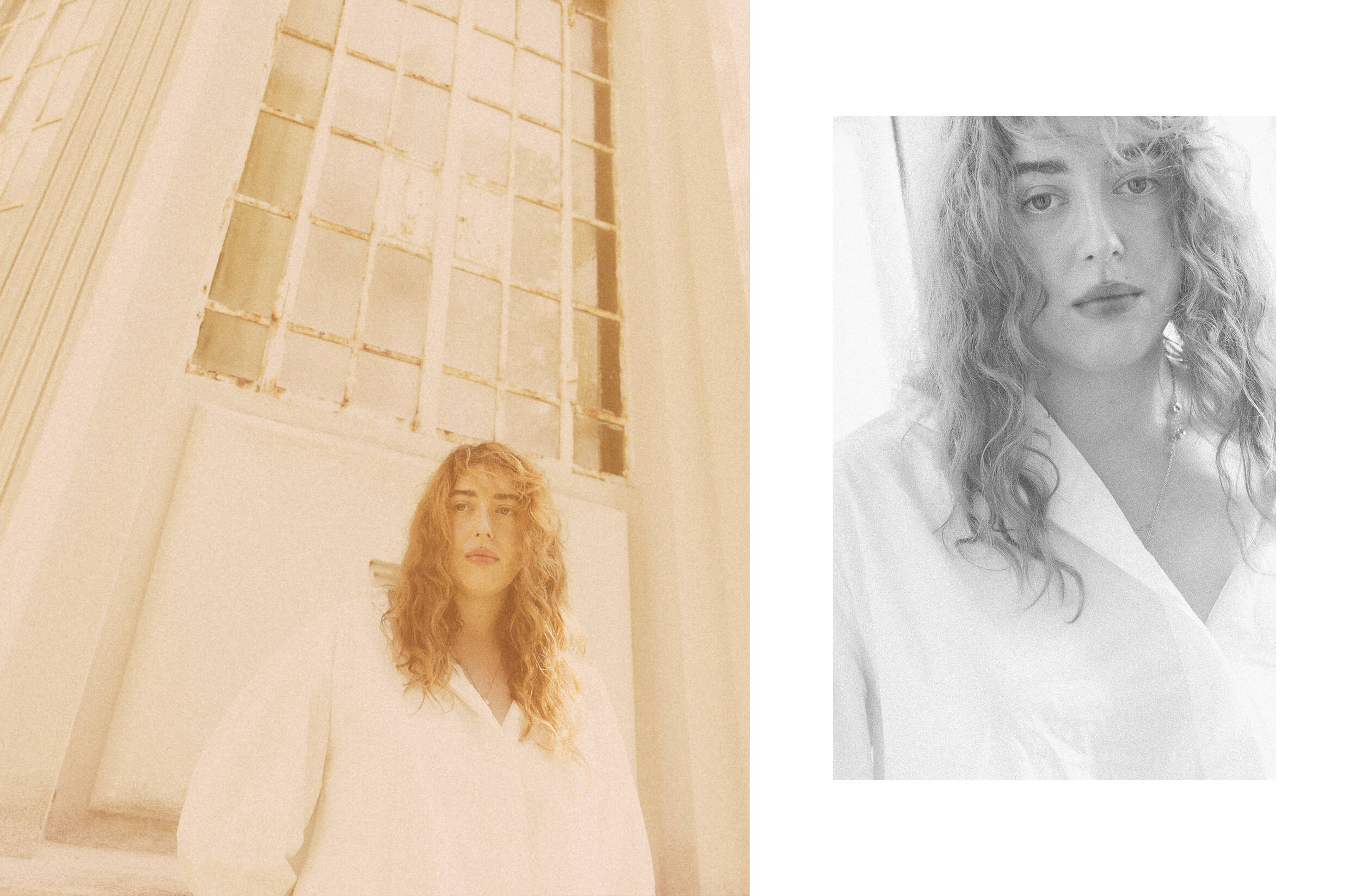When it comes to putting yourself out there, even with the possibility of getting hate-filled and dismissive reactions by the people of the world, young artists are the best risk-takers. And it’s not a matter of recklessness nor superficiality, it really is a generational thing: they just know they will make it, they just know what is meant for them.
Luna Carmoon knew that she’d already made it ever since her very first steps into the world of “Hoard”, her directorial debut: from the half-baked, private wordy dialogues written in her London shed during the pandemic, to the “memory-peppered” final story that she decided to put out to for the world to see it and relate to it.
A story of loss, grief, anger, and love: the vital and most intense and unpredictable emotions we all feel in our everyday life relationships. “Hoard”, premiering in the Venice Film Festival’s International Critics’ Week, saved Luna’s life just helping her exorcise all those basic feelings belonging to her beloved past as well as to her volatile present.
We can definitely say that “Hoard” is such an intense feature debut. How are you feeling right now, and how does it feel to be here with this project? I’ve read that you’ve started working on it almost 3 years ago…
It’s surreal. I was on the boat going across the canal yesterday and I was looking at the sunset and I thought, “This is crazy”. From where I began, in my shed, working in a garden writing some dialogues, to just being here now, it’s just absurd. This is my favorite Festival, it’s my first time in Venice and the program is always my favorite, it always has my favorite films, like last year’s “Saint Omer”, it was so beautiful, I love Alice Diop. I can’t believe I’m here, this is such a privilege, plus I love Italian cinema, so it just feels surreal to be here on the same ground where some of my favorite people released their work, right where I am now.
I began writing the story in the spring of 2020, so it was no coincidence, there was Covid and none of us knew what we were doing with our lives, we had no forward trajectory. I wasn’t somebody leaving their house, I was in my shed the entire time, and the story started to pour out of me as I sort of embedded my own memories from the past and they melted together. In fact, a lot of my memories are peppered in the film. These characters really helped me survive during hard times, it was them I would come home to from work, they were my housemates. No one was ever meant to see this story. Then I got angry, sadness turns in grief, which turns to anger, as these are the stages of grief, and I thought, “I don’t care if people are going to hate me if this story goes into the world, I want it to be out there” because I know people were going to relate to it. There’s nothing more universal than love and grief, those are the two things that we don’t need language to understand, it doesn’t need translating. I wrote the script between the winter of 2020 and the spring of 2021, and then in 2022 we were shooting it, so it was crazy.
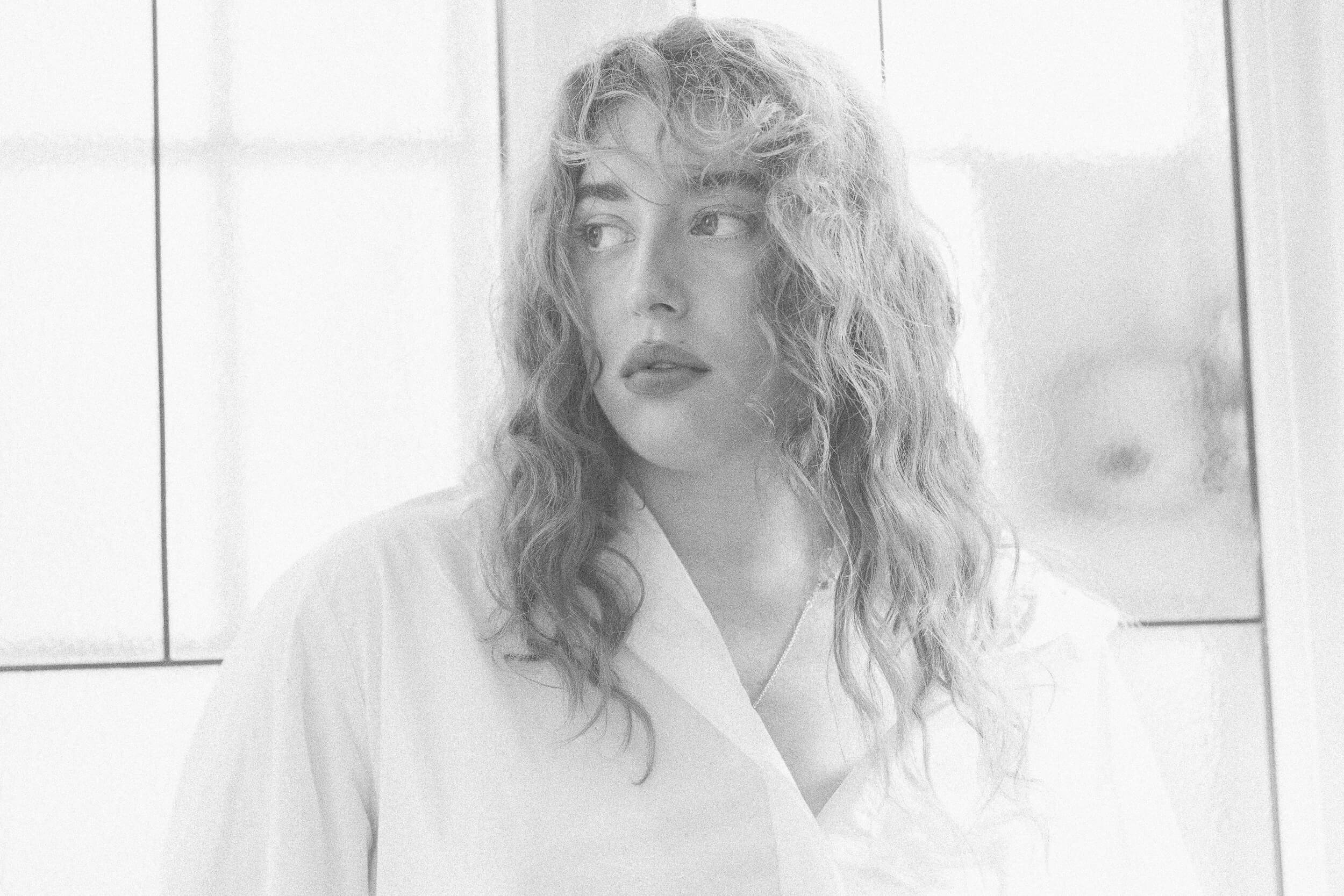
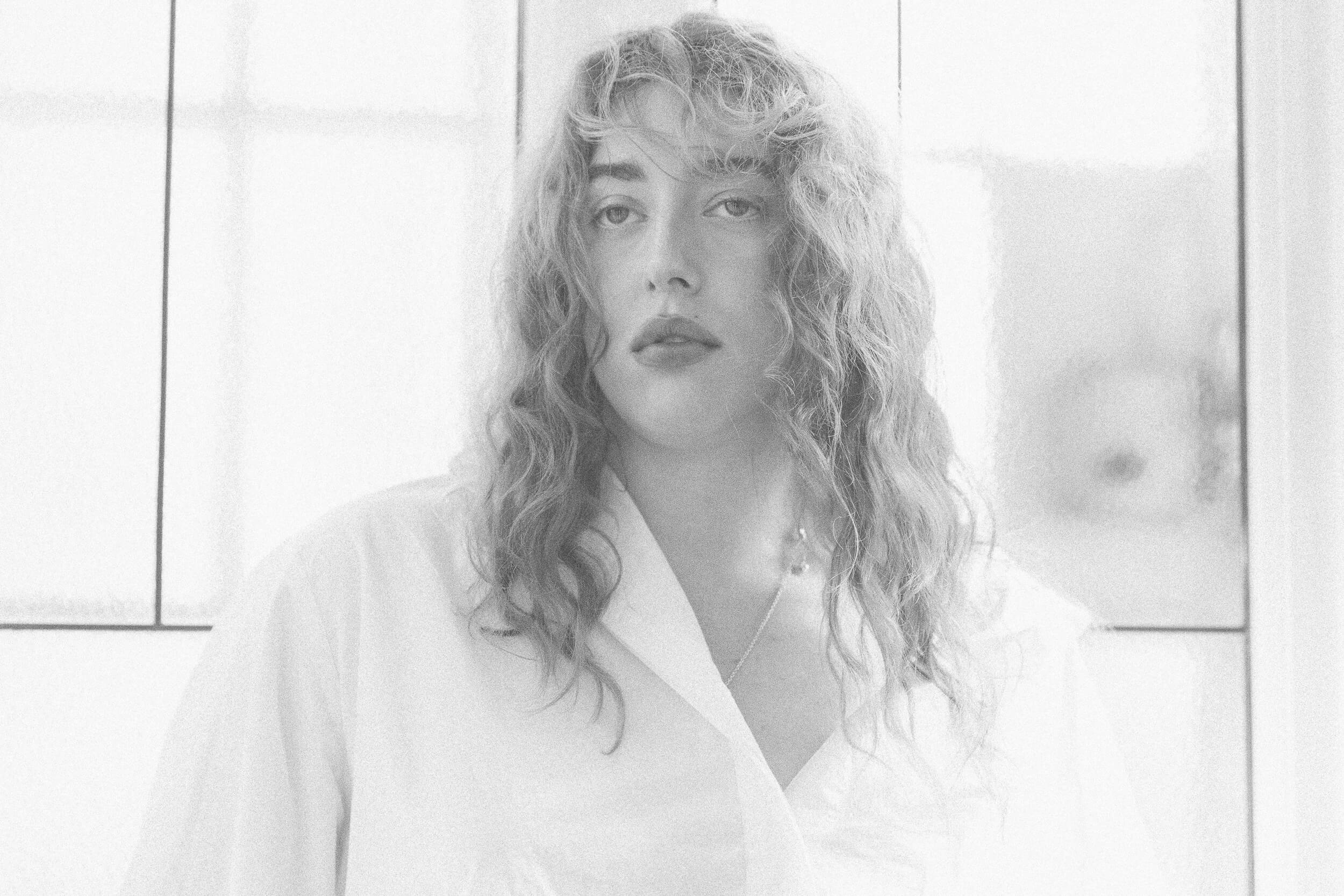
“There’s nothing more universal than love and grief, those are the two things that we don’t need language to understand, it doesn’t need translating.”
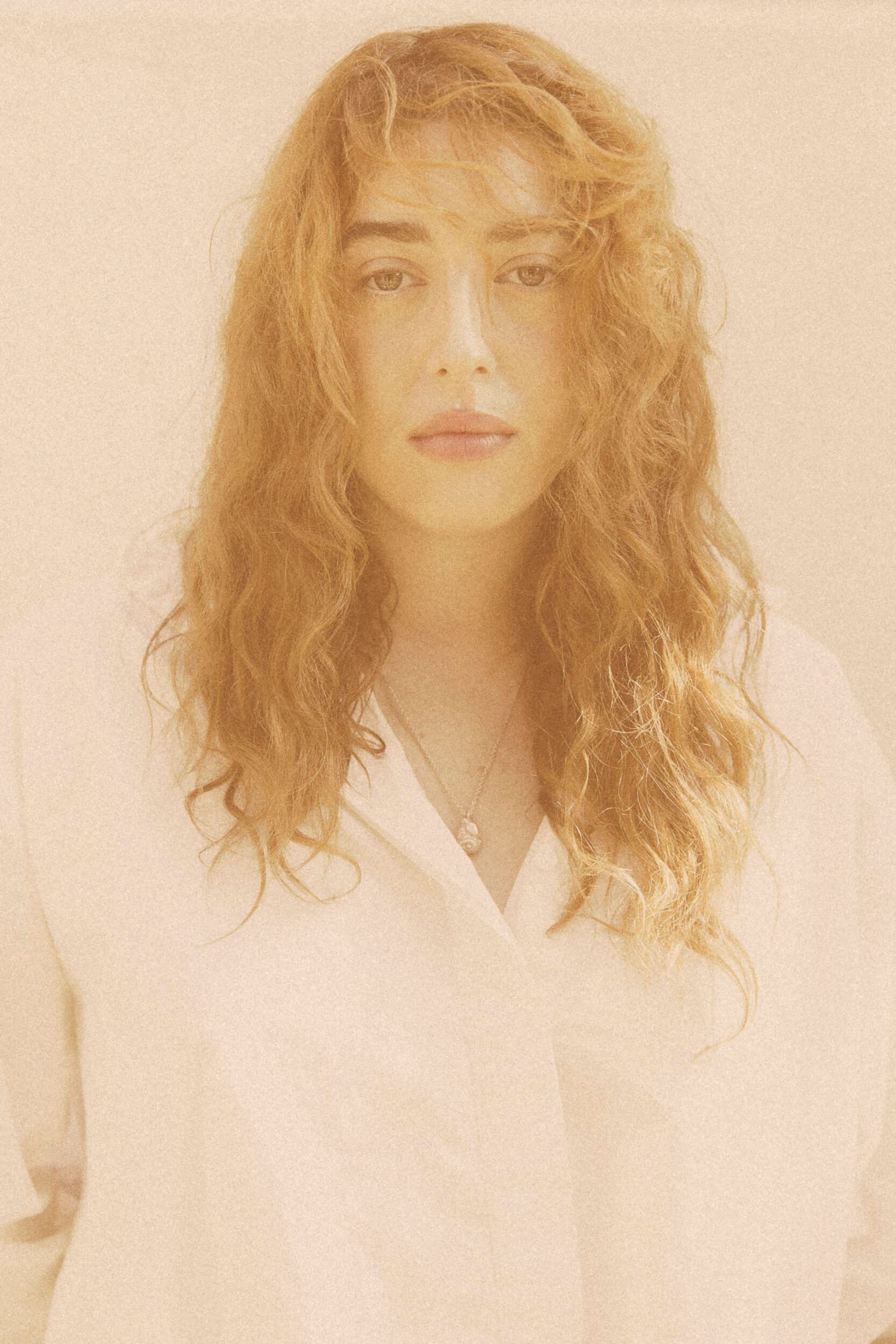
The movie shows us different kind of relationships and different shades of love. How did you come up with these characters and how did you build the dynamics between them?
Pretty much every character is an essence of someone I knew or grew up with, so it’s a little ode to them. There’s a tattoo that Michael has on his arm and that is an ode to a boy that I grew up with, who was a foster boy in a house a couple of doors away from me. The idea of Michael came out of the fact that I’d never met a man or a boy who, when I was left alone in a space with them, I didn’t feel like they were going to assault me and hurt me. All of the characters are a mixture of the people of my life, my grandma and my mother are there, both of them split in two in different versions, Maria’s best friend is based on my real-life best friend, and we really do live opposite each other; plus, the actress who played her had never acted before, and she was great, she really does embody my best friend. Everyone is birthed out of someone or something in my life.
The most important themes are the friendships and relationships in the film, and Michael is just a tool excavated in the past, whereas all the women are what grounds Maria, the core of Maria, they’re how she survives through all of this. And they naturally had such great chemistry, all of them, as soon as I brought them all in a room together – hysterical. We would laugh, and I couldn’t contain it, wetting myself from laughter because they were so funny. It was such a lovely group of people with such great personalities; you know, you don’t always meet actors who have their own identity, which is also why some actors are great, because they can shapeshift, but all of these guys had such full personalities that you can’t help but bleed it onto the screen.
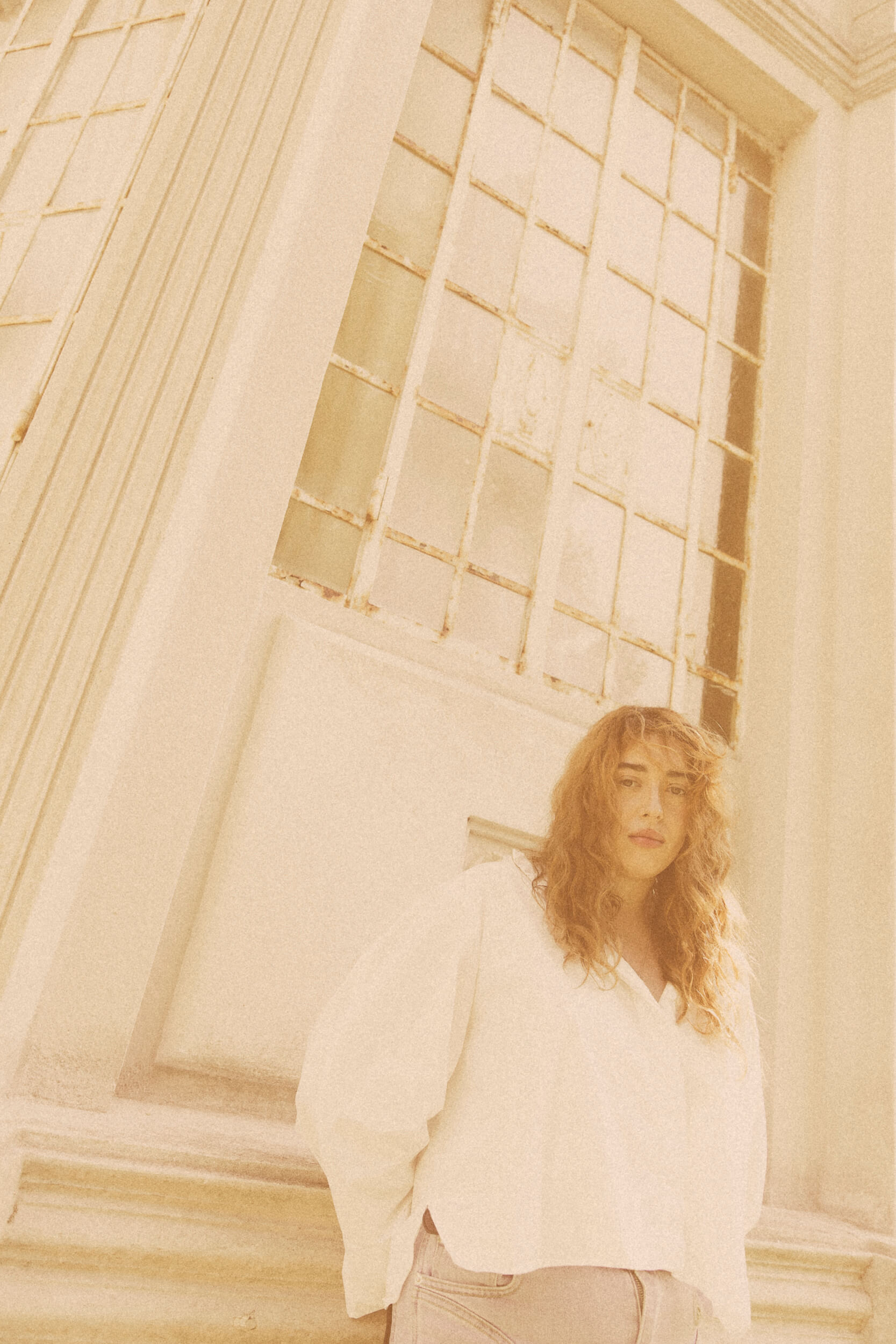
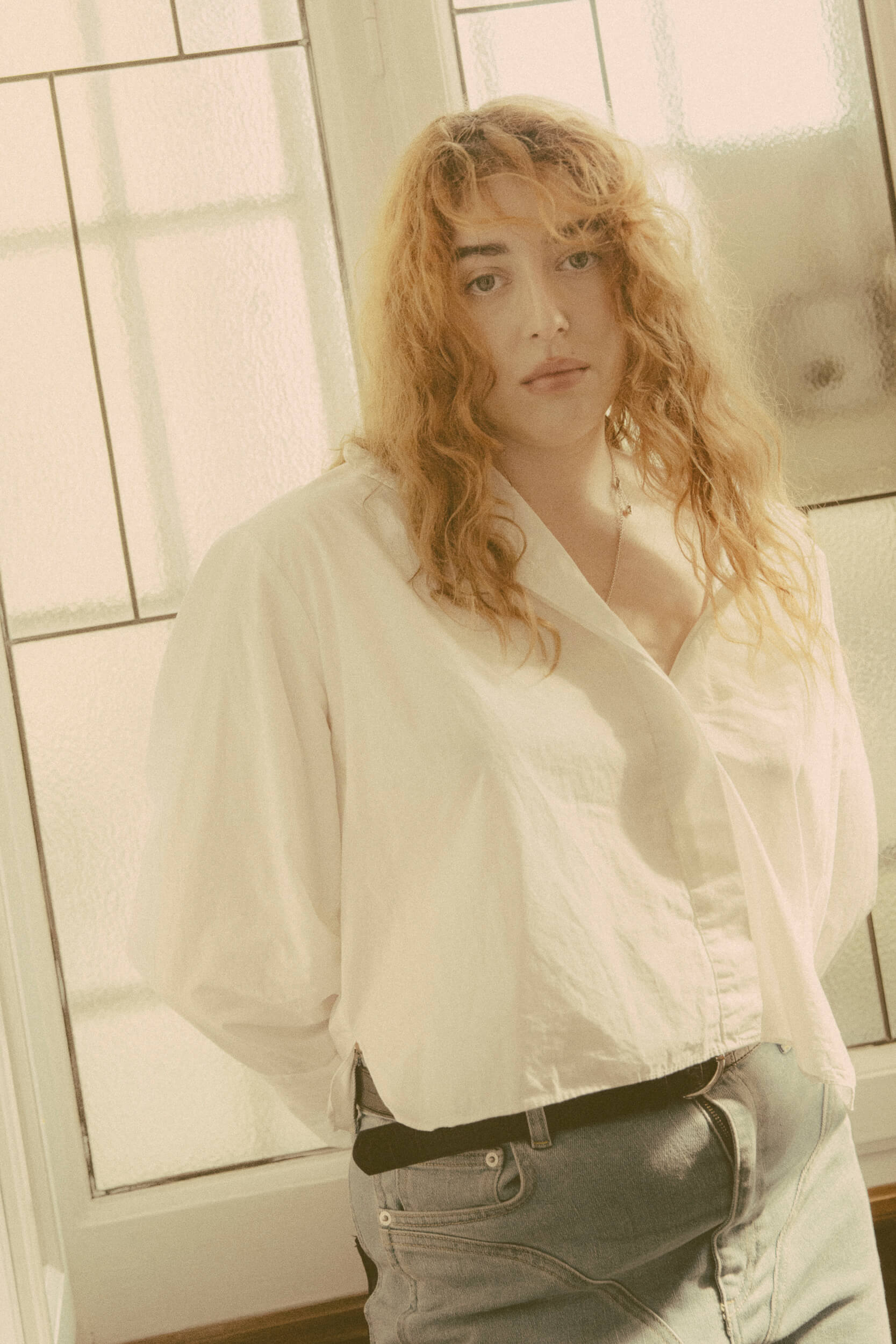
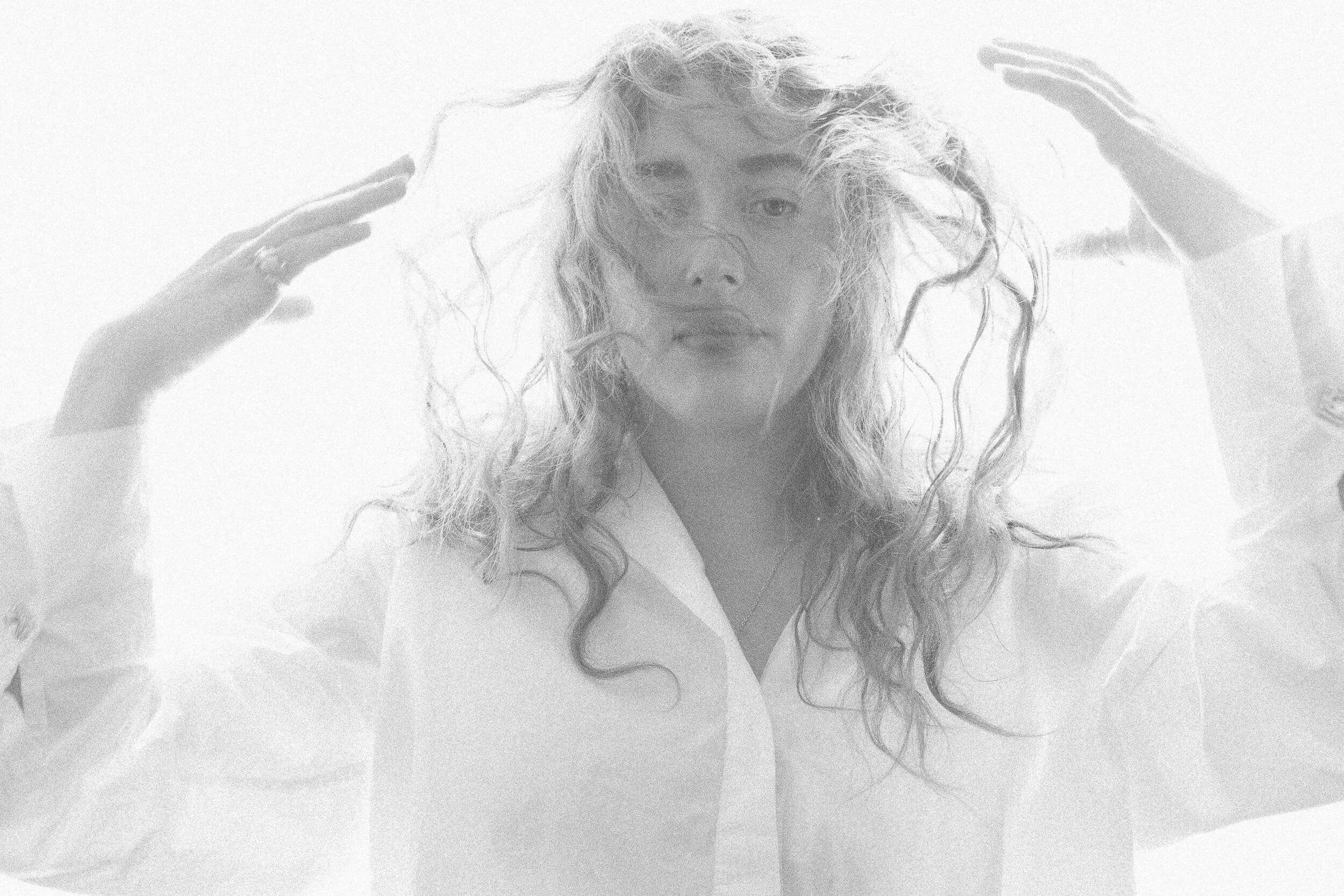
“Everyone is birthed out of someone or something in my life.”
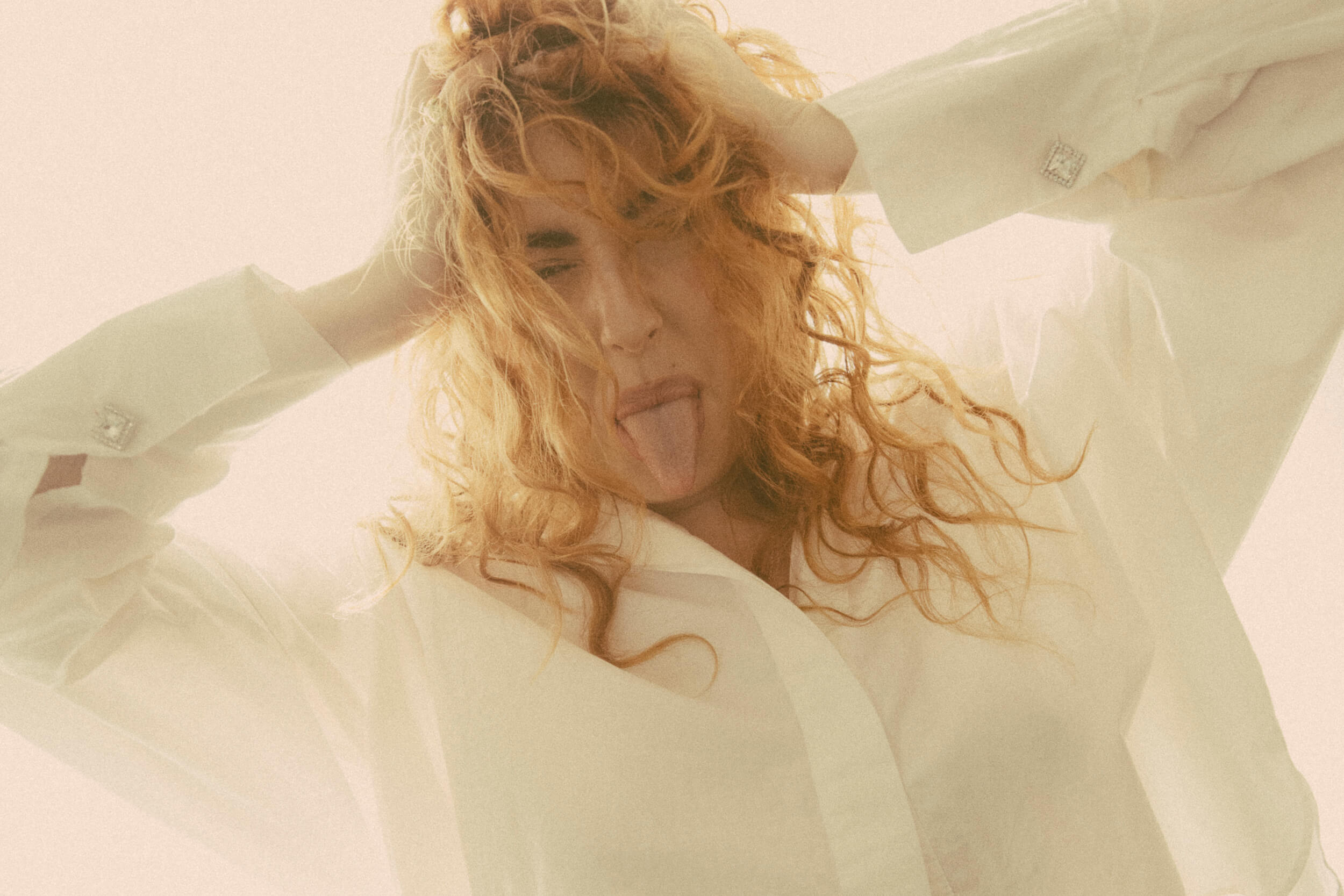
Also, your way of directing is very interesting, there are flashbacks, creative transitions, and the use of limericks between Maria and her mother. It’s not a linear story. What were the challenges of making it, and how did you overcome them?
The biggest challenge was the stamina of keeping your brain healthy, your mental health healthy while sharing a story like this one, and if we didn’t have such a lovely, full of life cast and crew, it could have been very dark. But we all loved each other so much and cared about each other’s well-being and safety and just loved each other really deeply, and that’s why it was all so easy. Especially when it came to splits, as there were lots of night shoots. As soon as we hit the splits, I think that if we didn’t all care about each other so much and had great chemistry all around, as I said, it could have been so dark. Even when we had so little sleep, everyone was giddying and acting silly, everyone was having a laugh, which put some levity to when we were shooting maybe more intense scenes, and we’d just giggle and really ground each other off to it. So, I think definitely the stamina of the nights. I’d never done anything like that before, so that was probably the biggest challenge, staying awake, staying lucid because it was down to me that these people felt safe enough to go to those places. That’s why I got so hyper aware of making sure they were safe and their wellbeing was important, so I had to be switched on all the time so that they could switch off and feel safe and go into the world. And they did so well.
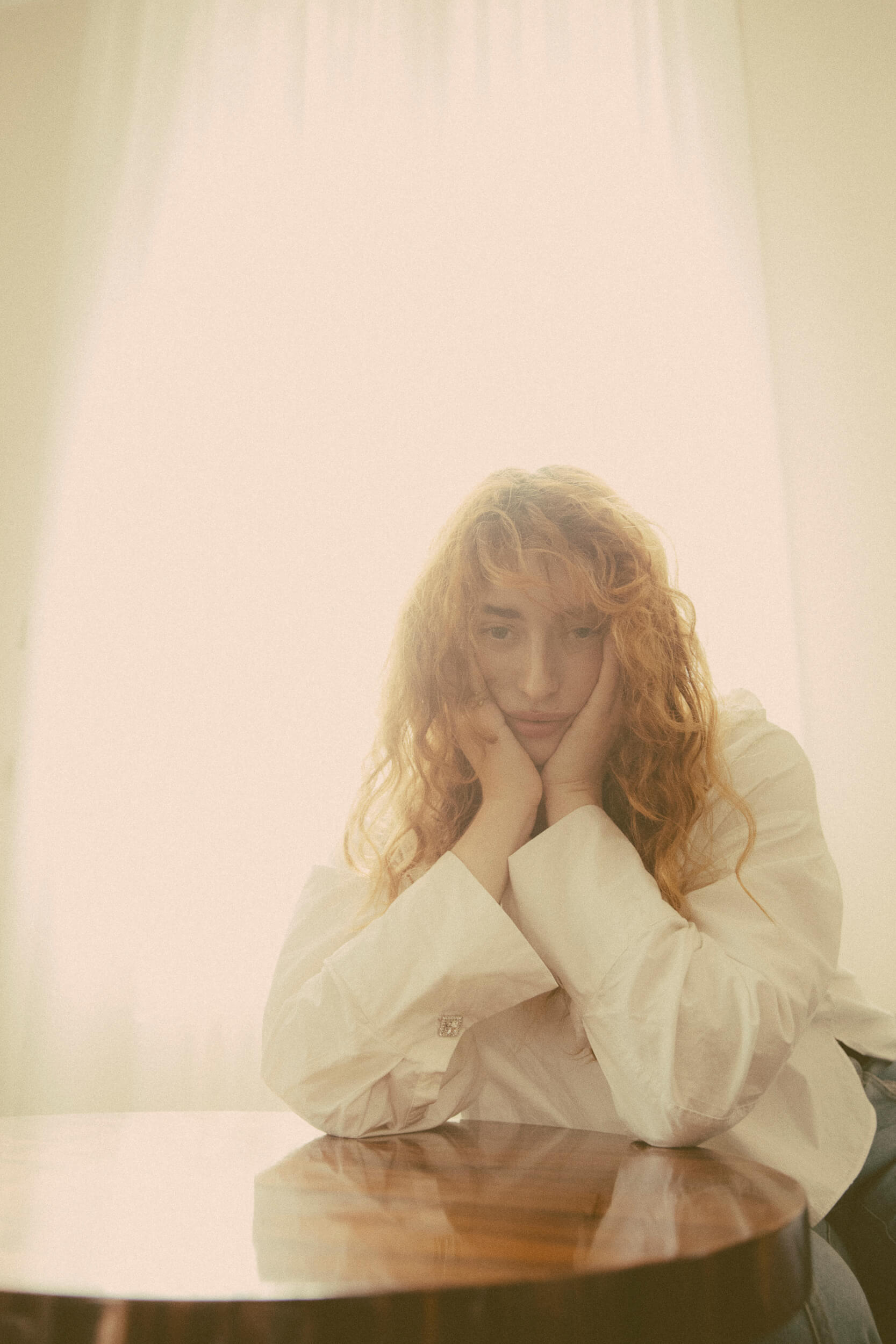
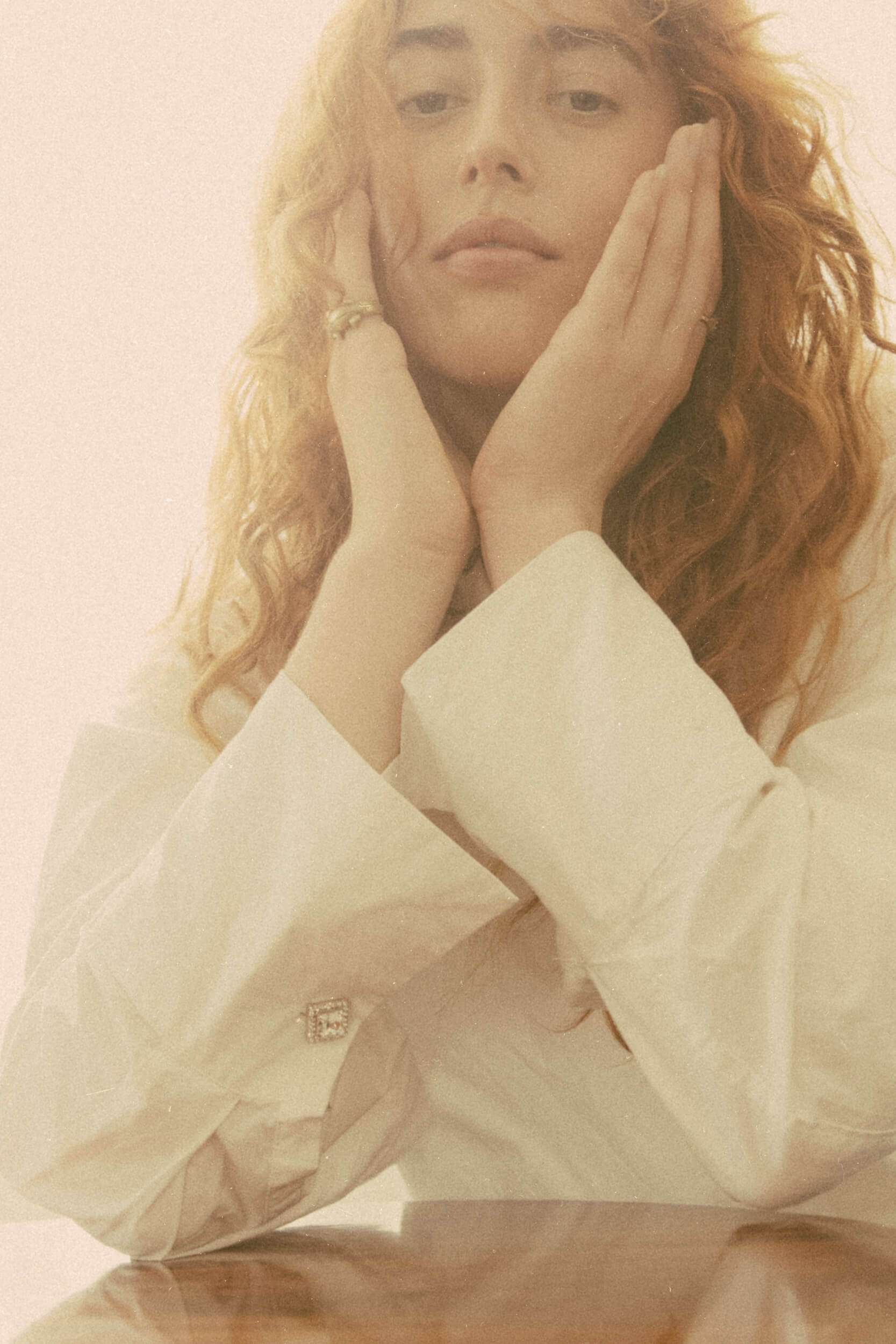
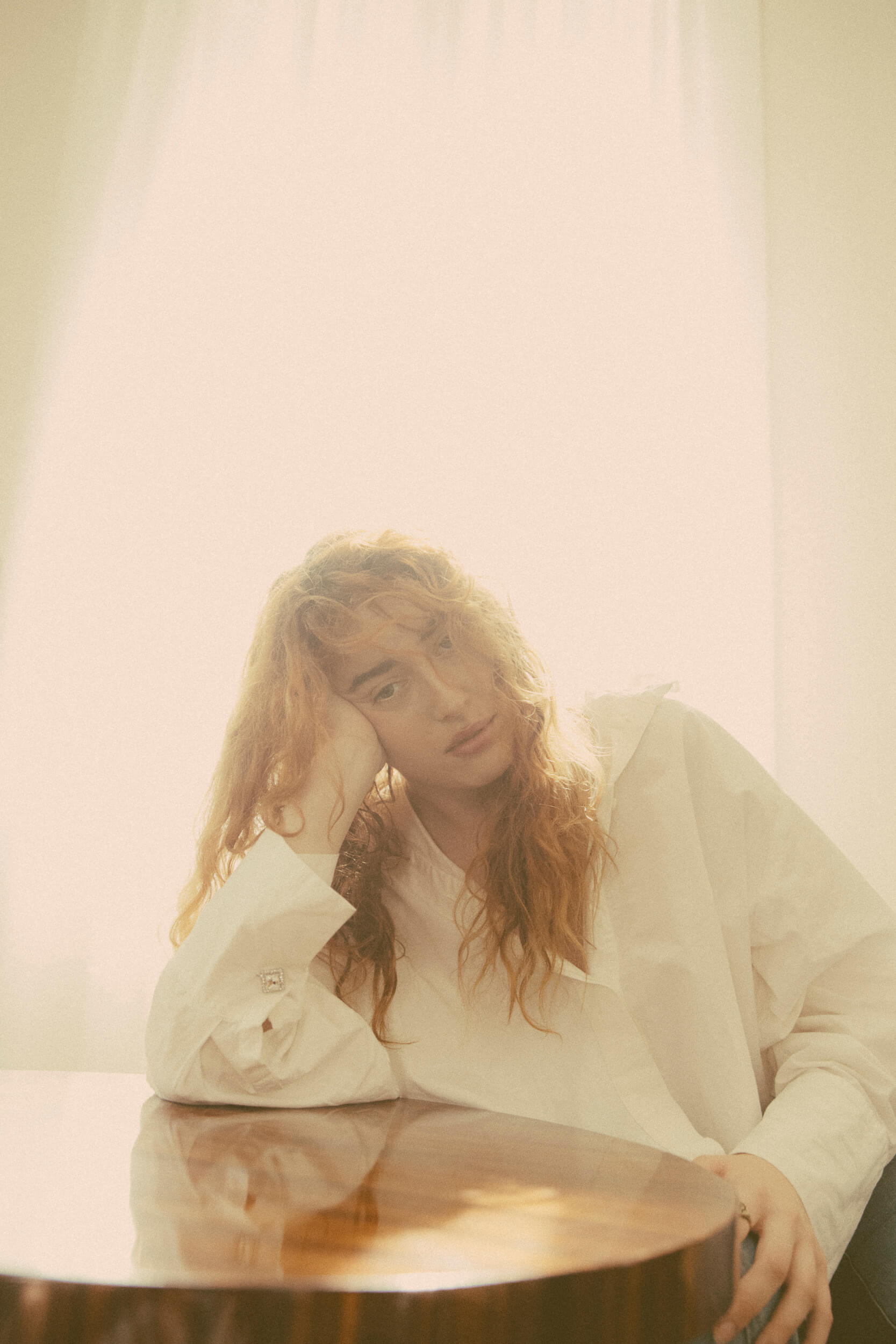
Through this movie, and especially the journey of Maria, we understand that grief and trauma can be overcome or, at least, that you can coexist with them. Is this point of view also your way of coping with these feelings?
Yeah, this story saved my life! While writing it, I was really going to check out and it was a story I was going to leave when I’d checked out, and it was going to be found at the bottom of my bed, wrapped in a ribbon for people to discover and think, “Oh my God, this girl is disgusting”. It saved my life, really. Writing for me is as wonderful as when I get to shoot, and I think joy lies within the doing, and if it’s enough for you to do it for yourself and alone, all of this stuff is a bonus, getting to experience this with other people is the bonus. For me, I love going into these worlds and escape and they really have been part of my survival. Writing is an exorcism of my past and it’s an exorcism of shading a layer of parts of my past, and healing from it definitely. And I’m sure I’ll do this over and over again.
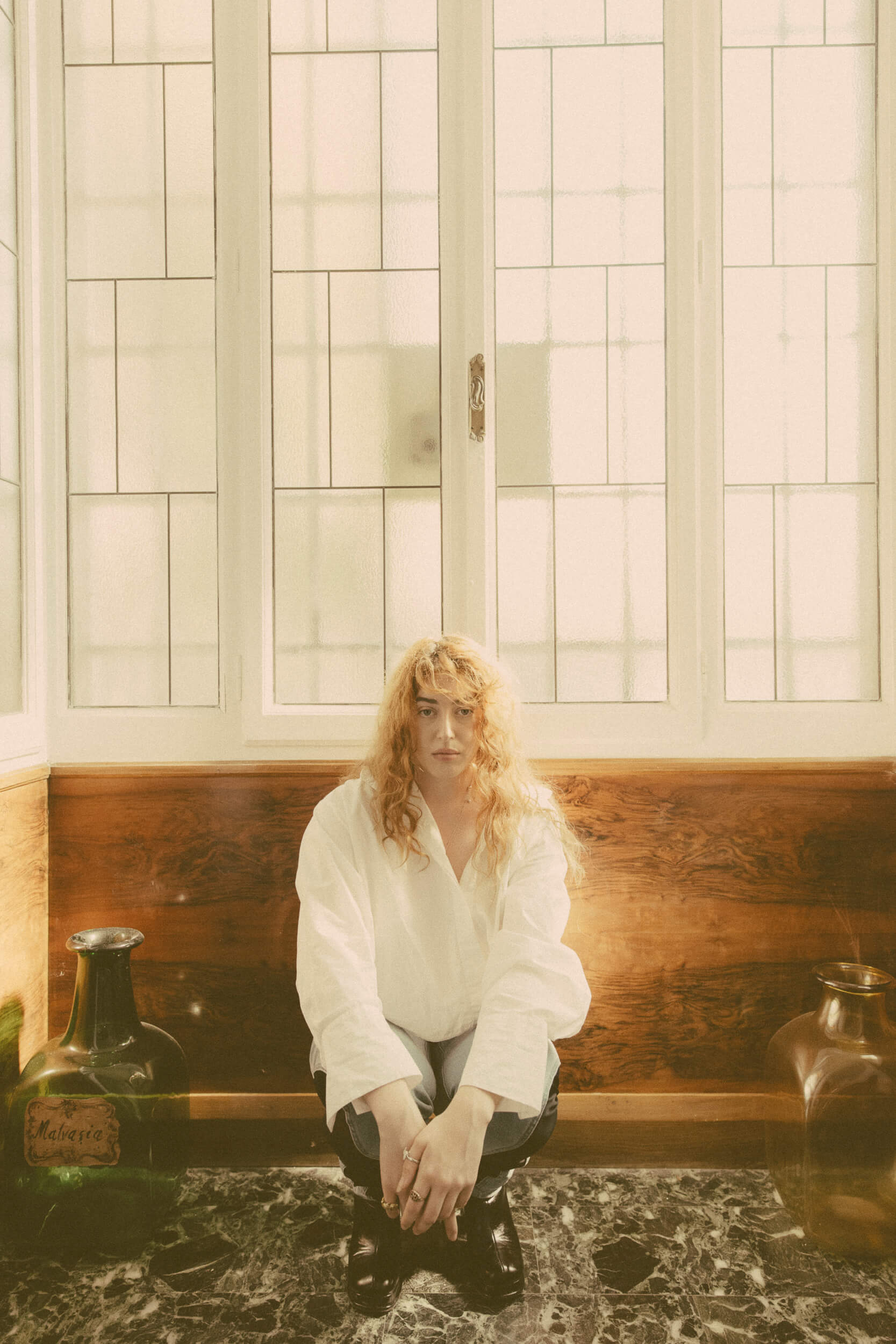
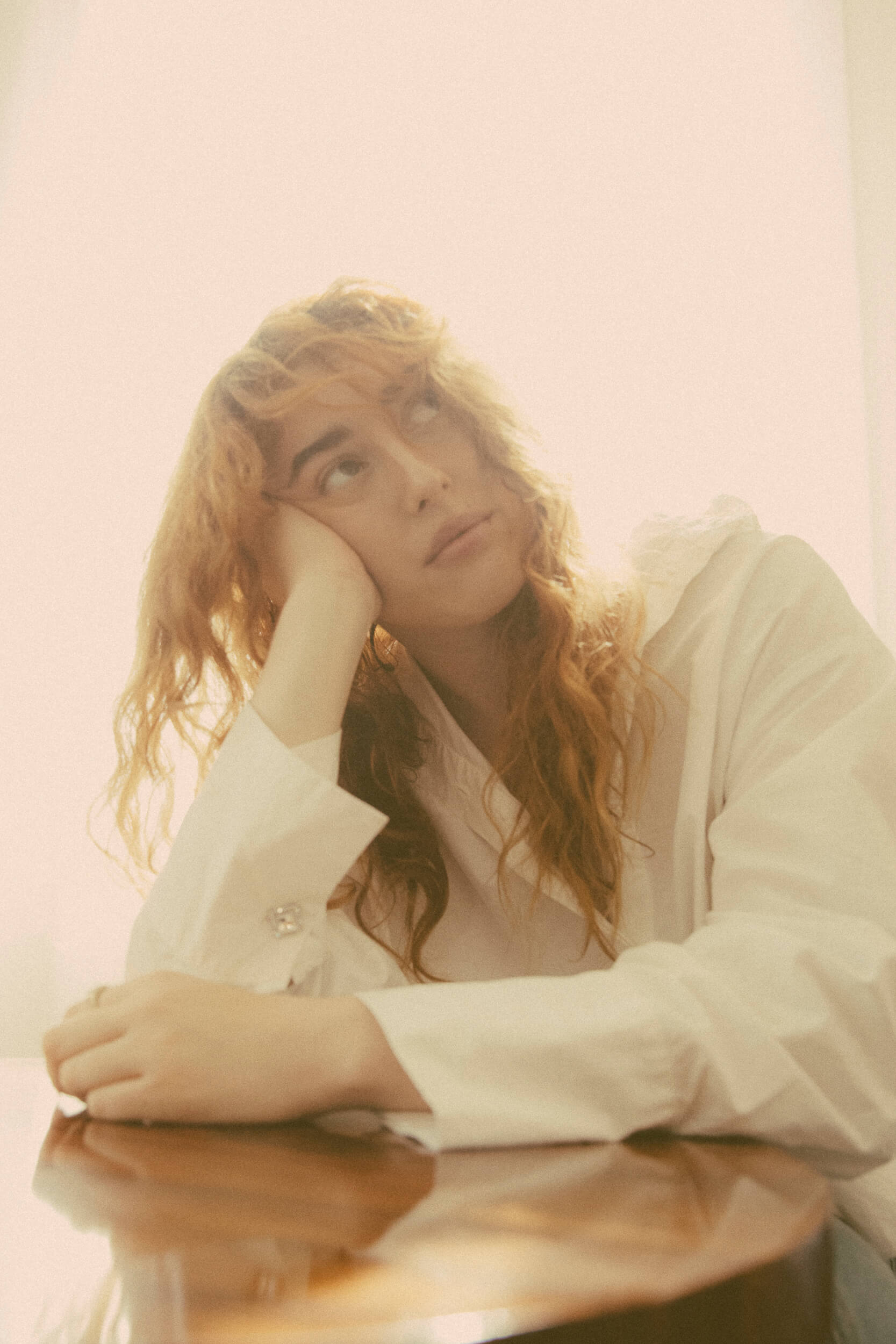
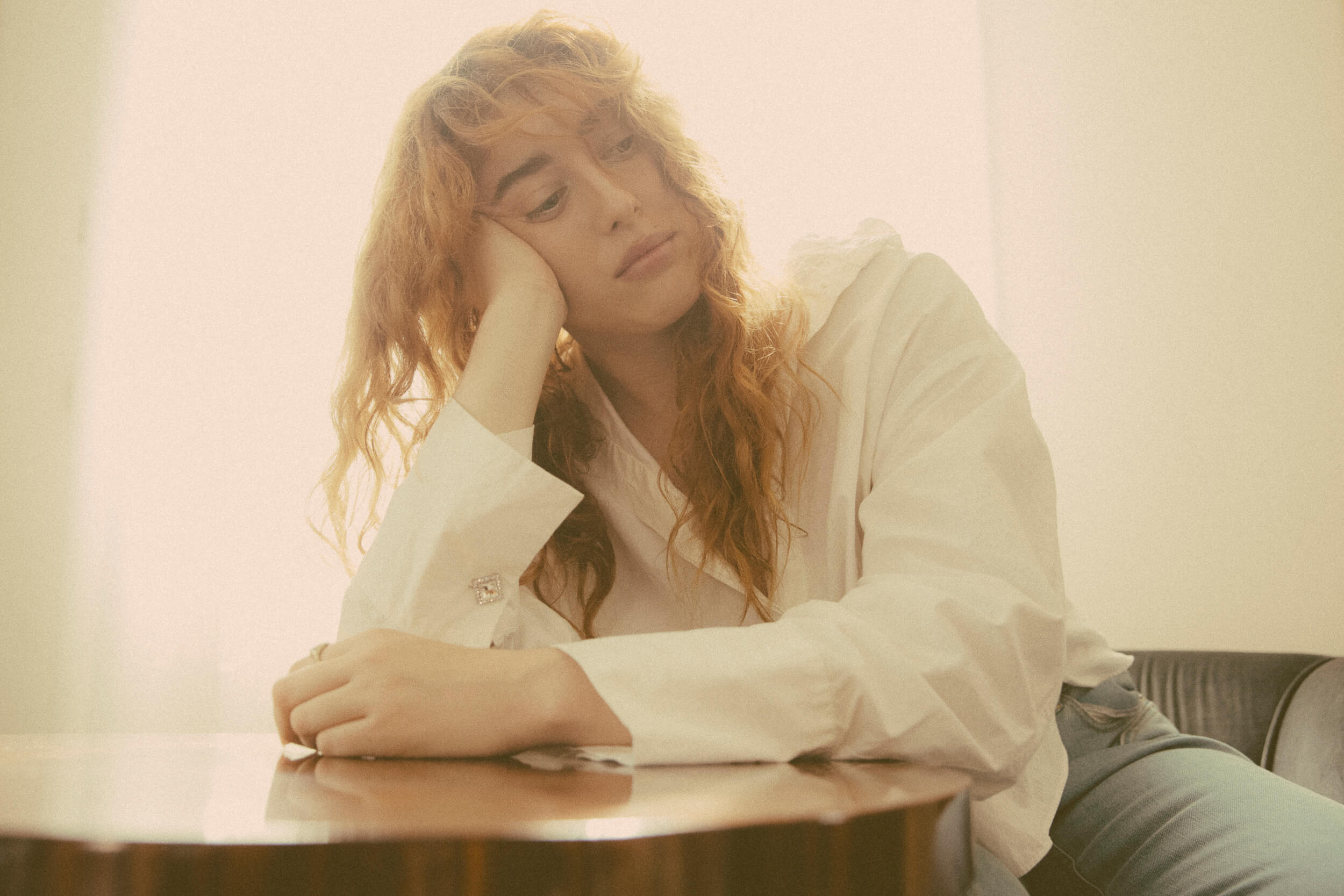
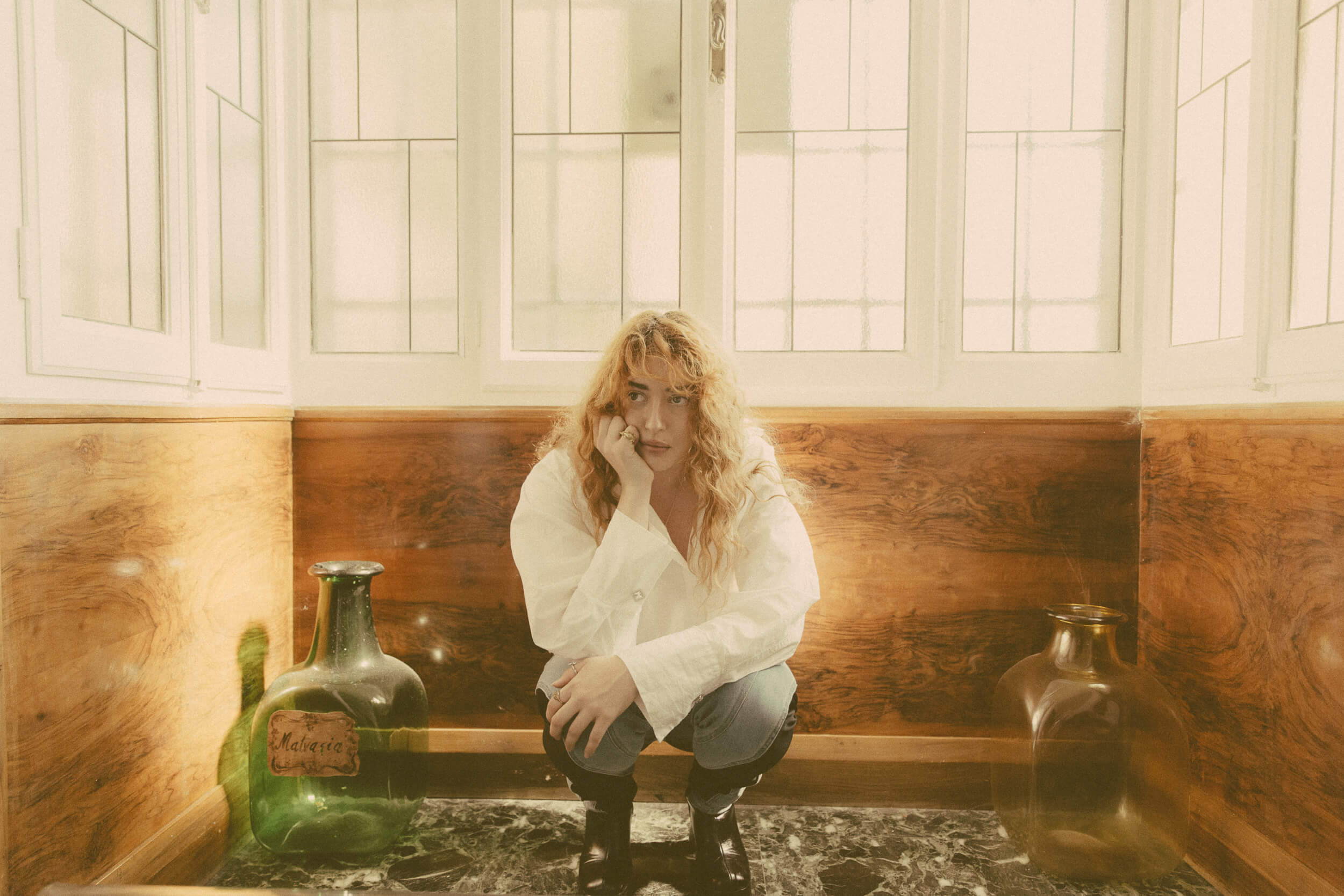
The past with its memories, the present and the future: for Maria and Michael, they have different meanings, but what about you instead?
I’m very dangerous when it comes to the past, I romanticize it, and I can get stuck in it. I am a very sentimental person, I go back and I watch all the VHS tapes of my grandmother and her times, I have them on my phone and I would watch them at night, it’s like a sadistic little ritual. I’m a deeply melancholic person in general, so I can’t help but crave them. But memories feel as alive to me as they did when they were the present, and I feel as close to them as I felt when I was experiencing them. I’m the least present person you’ll ever meet, I masque it really well but I disassociate very well, too; most of my existence is made of looking at my hands and feeling like I’m in an alternate reality, like I’m in GTA.
The future… I know that what it’s meant for me is what is meant for me, so I don’t really stress about the future because I think it’s already happened. What I kept saying from the beginning of the film was that we’d already made it, it’s already happened. And when you know that, you know the things that are for you and you follow the invisible tethering, and that’s the animal in us, that’s what Michael and Maria have, they know that in some way there’s a tethering, an invisible rope between one another. That’s how I feel about my projects, I know when I have to follow these feelings and write things out and exorcise things out – it’s already been made in my head.
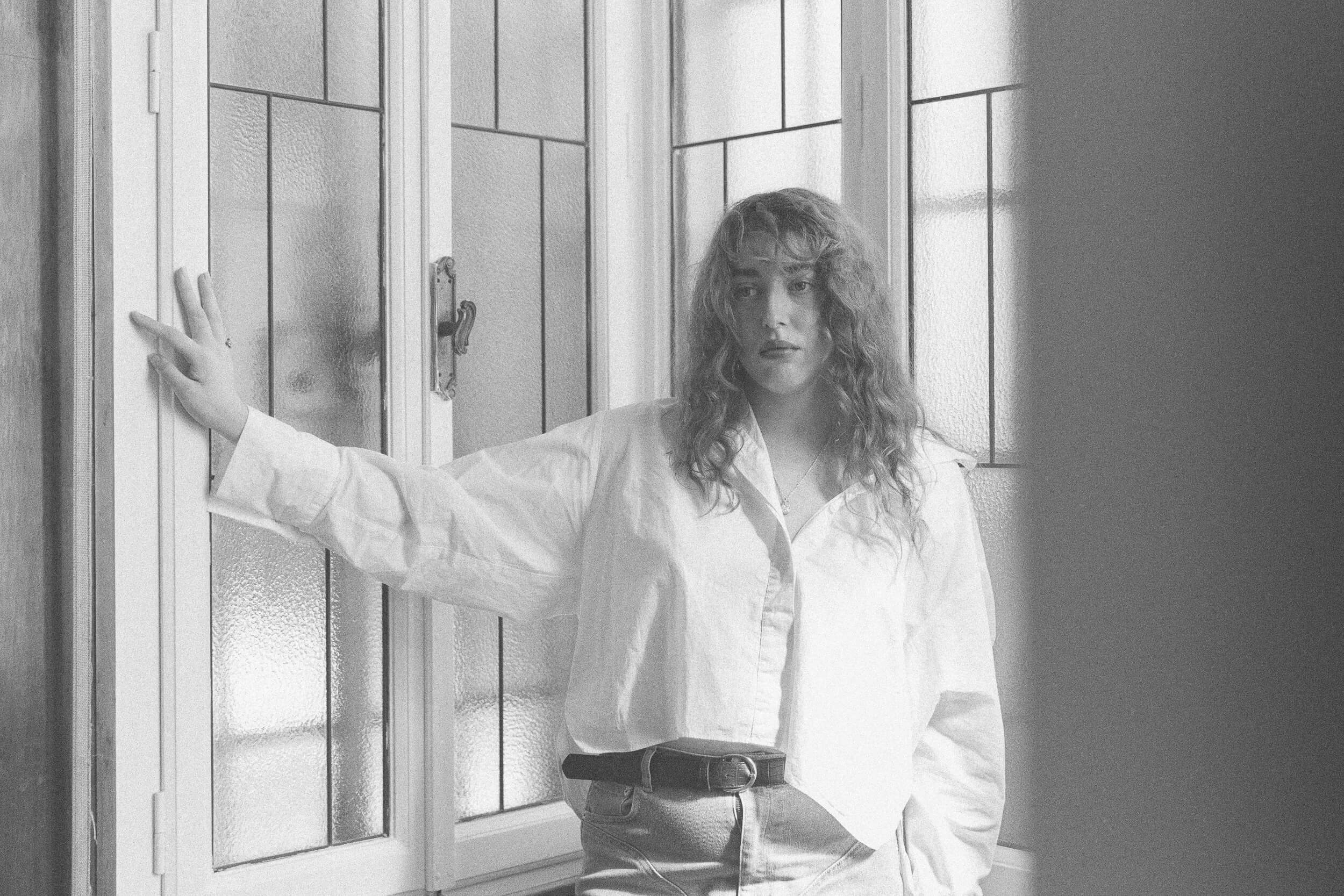
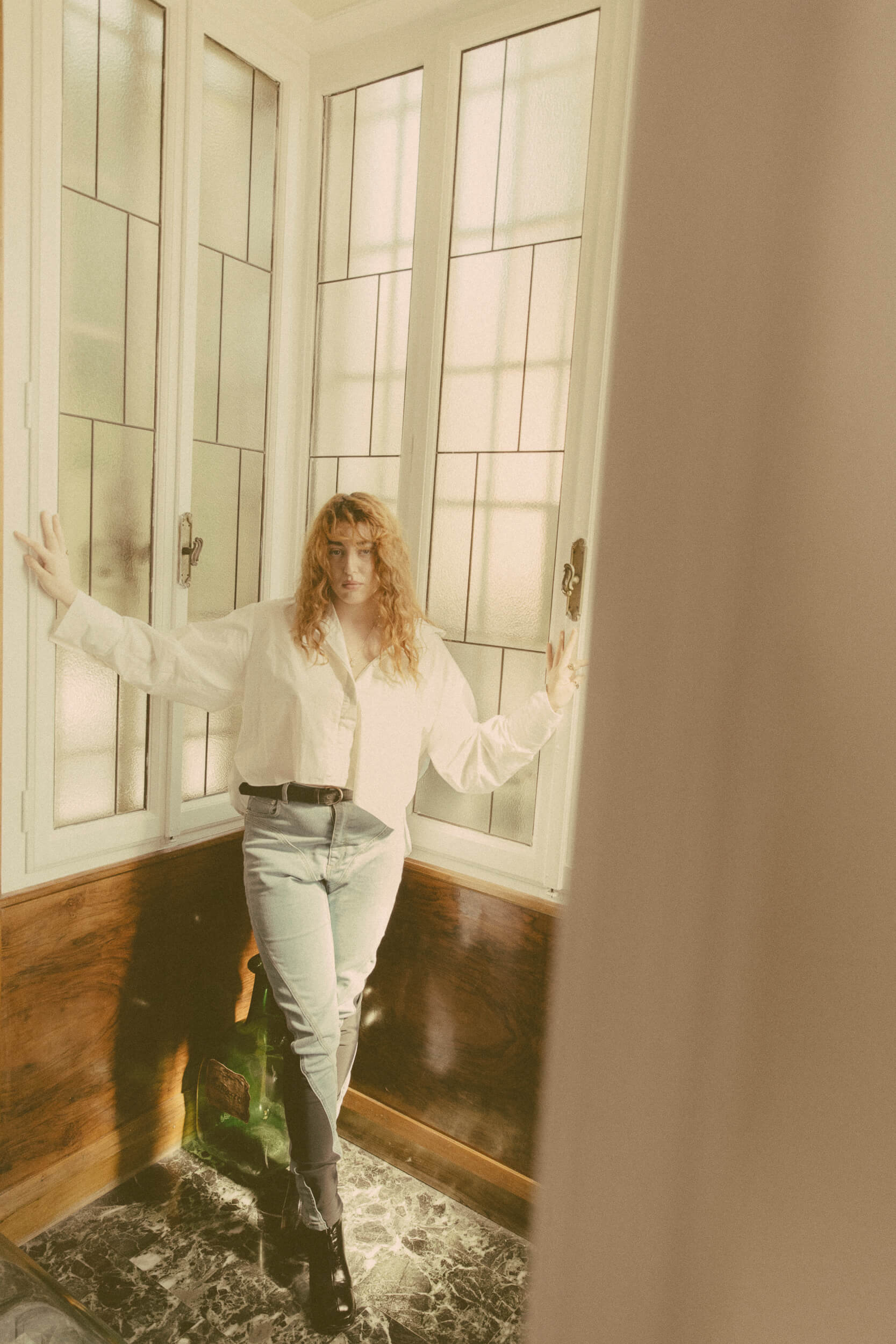
“But memories feel as alive to me as they did when they were the present, and I feel as close to them as I felt when I was experiencing them.”
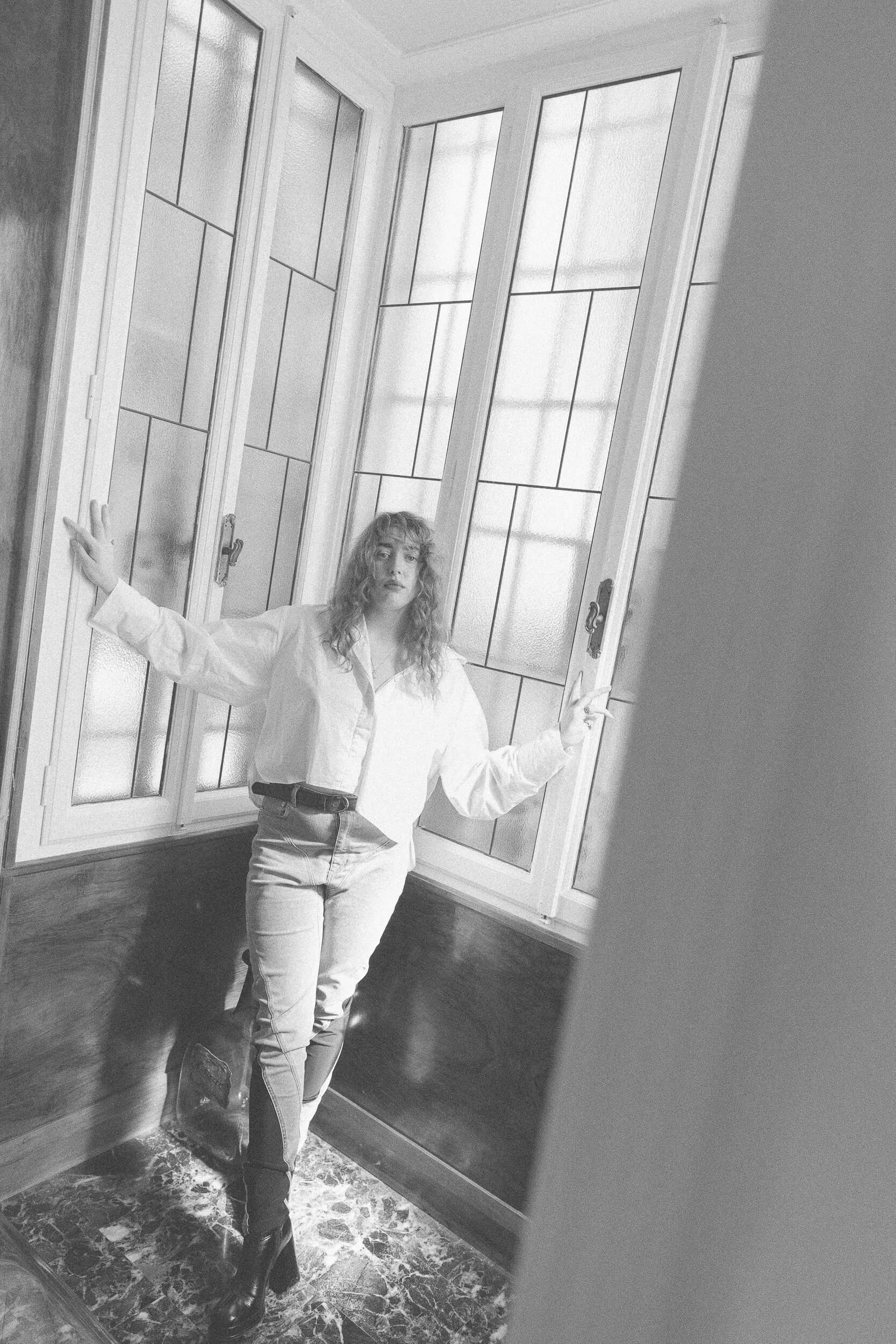
Are directing and writing your ways to combine fantasy and reality? What do they present for you?
Everything that I’ve ever done so far is based on real things, both of my short films, too, the characters were based on people I knew, and I film everything where I live. Even the house we shot “Hoard” in, the second one, is a house around the corner from where I live, so that layout is exactly how my house looks like, and even in the house at the beginning of the film, we recreated my living room from old family photos, so, when my mother walked in, she entered the past. I only really want to do things if they’re personal, and even if they’re not my personal experience, I have a personal attachment to them, I do seep in my own experience and my own memories. Some people say it’s unhealthy, but I think, how can you be wrong if it’s of yourself? How can people come at you when you own it and it’s your life? I’m interested in immortalizing memories. Maybe people I don’t speak to anymore will see parts of themselves and recognize themselves, and know that there’s a lot of love in all of those memories, even when you no longer speak to those people or they may no longer be alive.
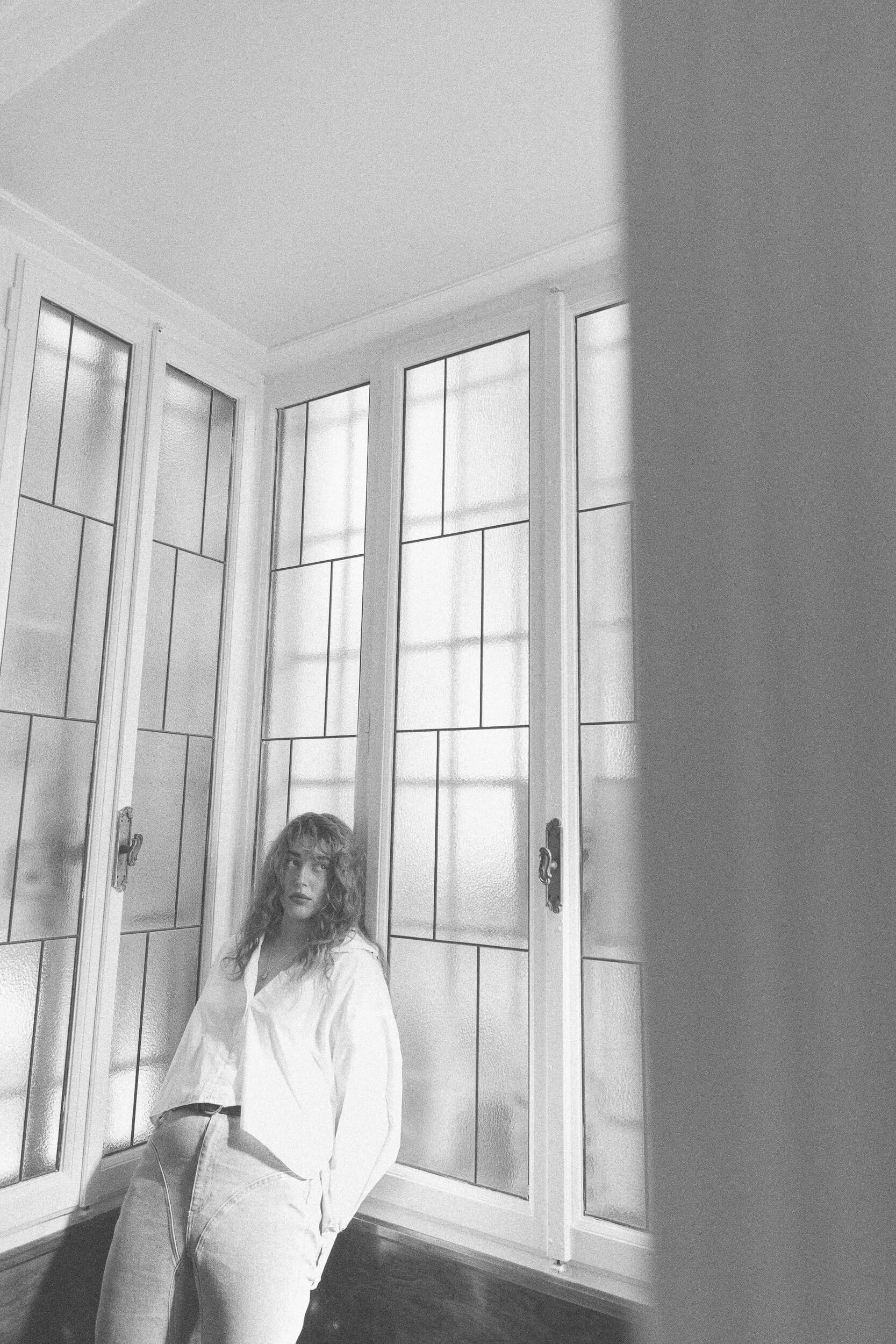
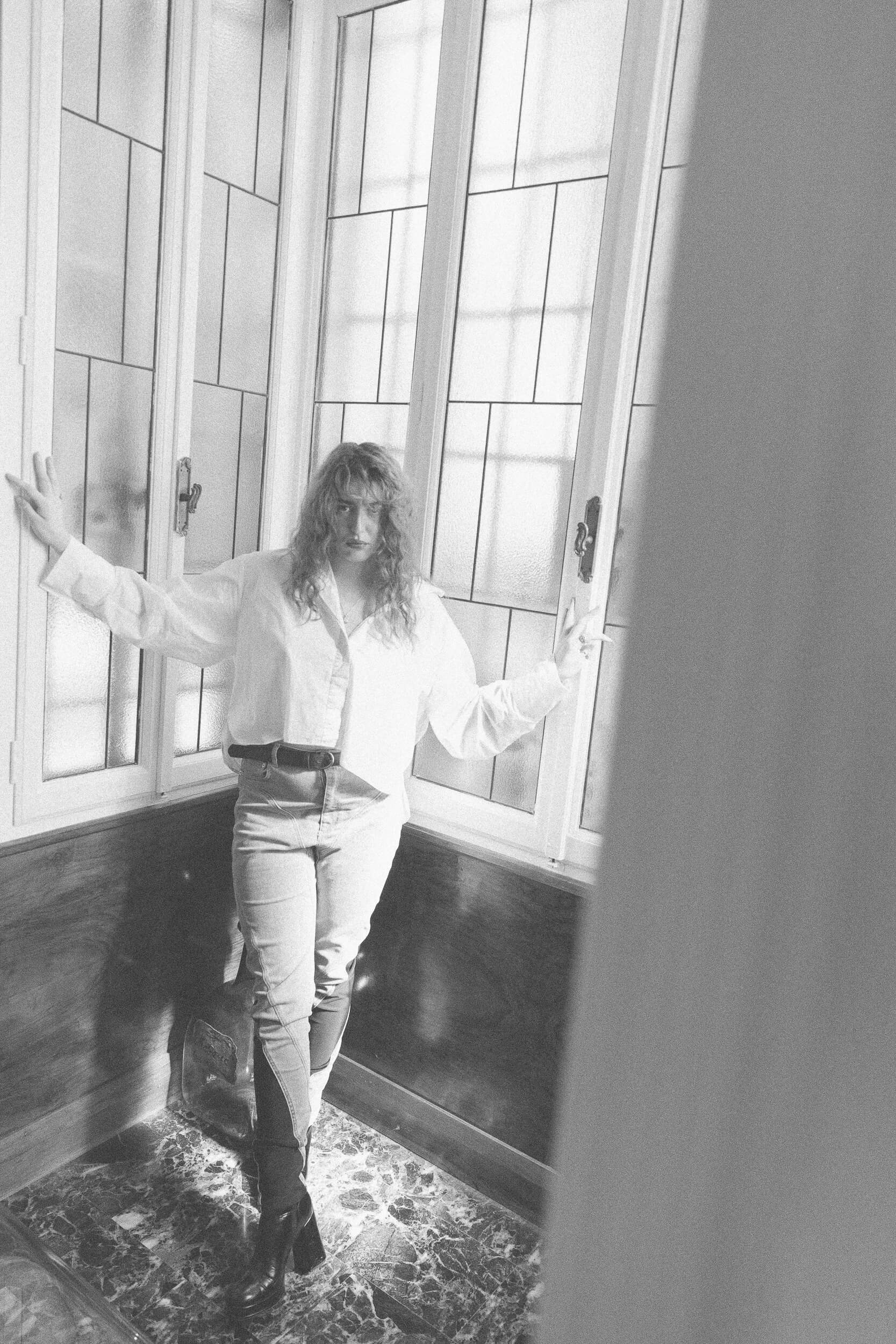
Through our work and projects, we have the opportunity to go deeper inside ourselves. What’s the latest thing that you’ve discovered about yourself through “Hoard”?
It’s really funny, I was talking to my mom and my sister about how a lot of people find mothers’ behavior perhaps wrong at times. But we’ve been brought up in a very hyper dysfunctional family, in a way, and many people say that love is so volatile and so real, but also our emotions are so intense and stagnant, and this is something I’ve realized while making this film; about the film itself, each time, and even when it comes to myself, I would discover things that I didn’t mean to link up or synchronize. It’s one of those films that you would watch over and over again and discover more and more things. I’m learning all the time that the world humbles you… I’ve learned a lot about myself during this, and especially that I can do it.
We are used to ask “what’s your happy place,” but instead I would ask you: where’s your nidus, your nest?
Do you want me to be honest? Four days of not washing. Being in my bed. I’d probably shed a couple of layers of skin, eating toast and sugary tea, and watching films. My neck on my chest and my arms suspended.
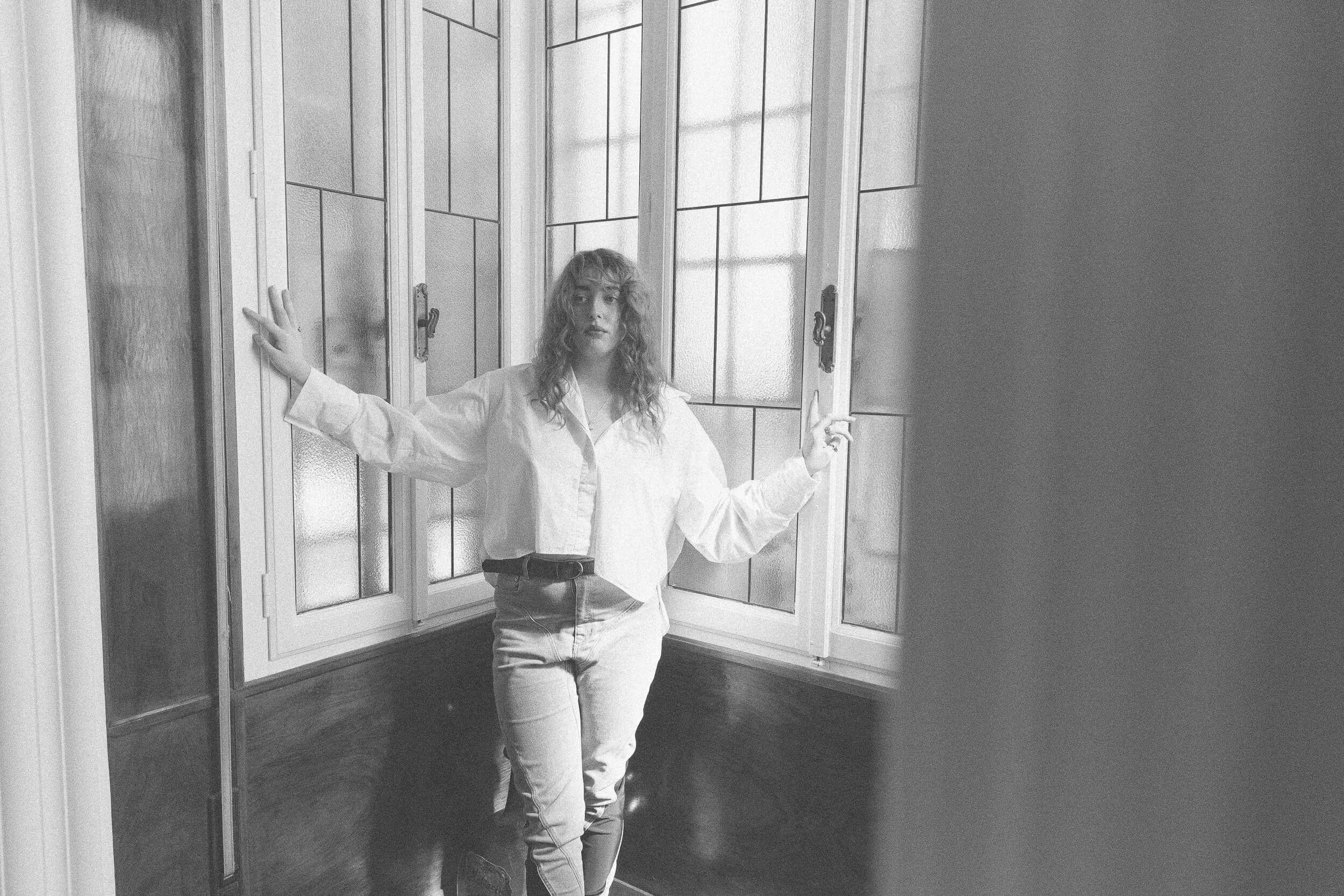
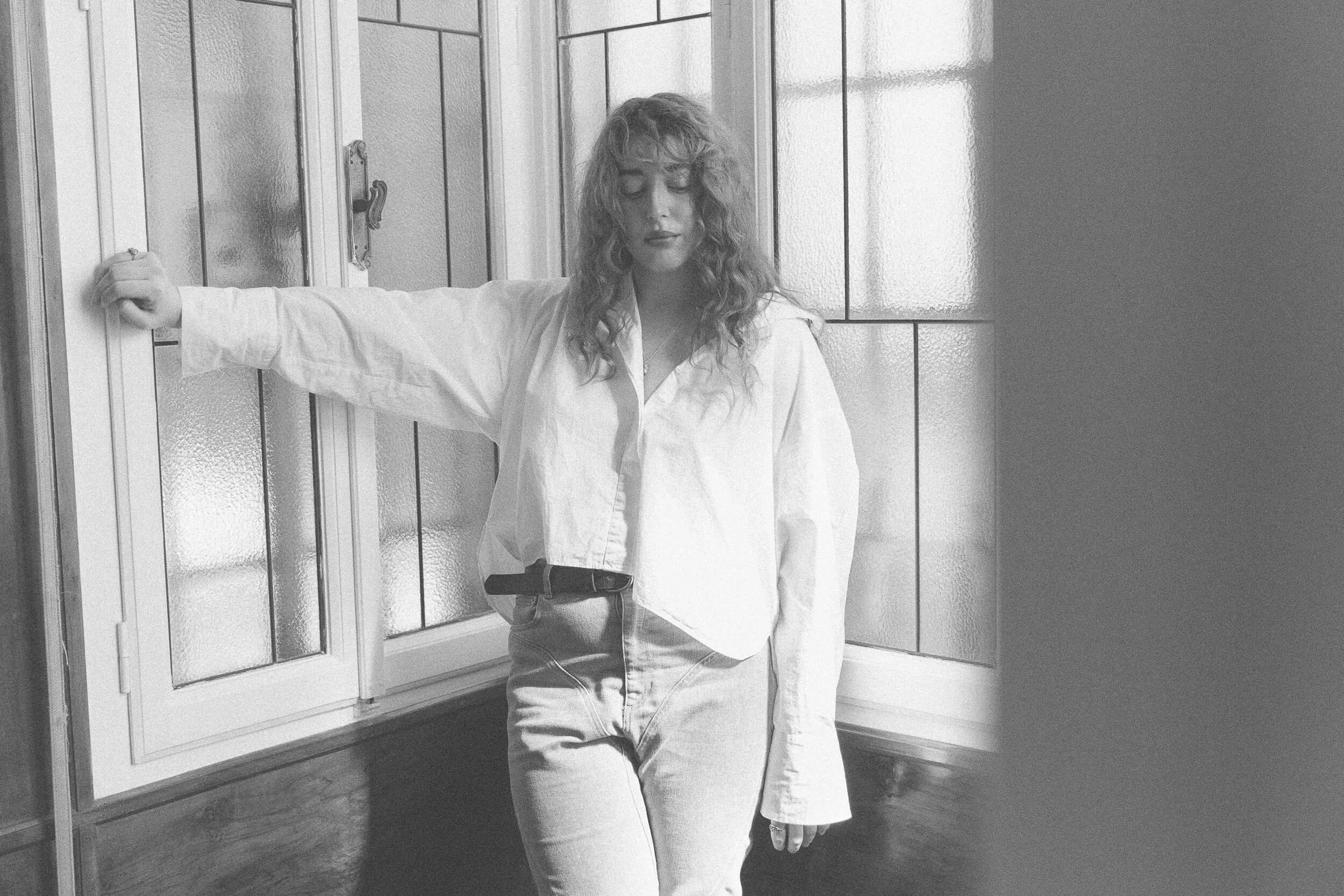
Photos by Luca Ortolani

